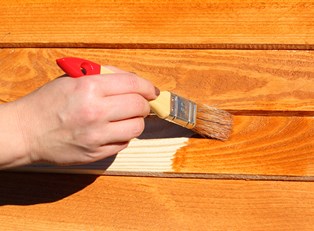Compost is incredibly beneficial to your garden's soil. You can make your own compost bin for under $10 in less than hour.
Composting is a process that happens naturally in your own backyard every day. Compost is just decomposing organic matter, like leaves, grass, sticks, bark, or weeds. If the material comes from plants, you can compost it. Once your compost is ready, you can spread it throughout your soil to promote healthy plants with stronger immunity to diseases. First, however, you'll need a container to keep it in.
Supplies You'll Need
- A plastic container with a lid (preferably 2 gallons or larger)
- Those plastic storage totes you can find at any big box store are perfect, but you can also use a large paint bucket.
- A drill
- Just attach a drill bit in the size of your choice.
Directions
Start by drilling holes in all directions in the plastic bin. Drill them about two inches apart in the sides, bottom, and lid of the storage tote. You will need holes in the bin in order to let oxygen in because your compost needs to stay aerated.
Once your bin is ready, you can start composting. First, add a layer of dirt to the bottom. The basic rule is "three parts brown matter to one part green matter." This means you need three times as many "brown" materials, such as bark, hay, old leaves, pine needles, or newspaper shreds, than you do "greens" like yard waste and food scraps.
-
You can add food scraps and kitchen waste, such as banana peels, paper napkins, old newspapers, fruit and vegetable trimmings, potato peels, corn husks, egg shells, coffee grounds, and even old flower arrangements to your compost bin. Never add meat, dairy, animal waste, or greasy foods to your bin.
Once your bin is full of soil, browns, and greens, put the lid on it and wait for the magic to happen. When you add to your compost, shut the lid tightly and give it a good stir or shake to help the contents mix and aerate. This helps the process of decomposition go a bit faster. It's also a good idea to add about two cups of water to the bin every time you add to it to keep the environment moist.
The overall process helps cut down on environmental waste, provides an organic, chemical-free fertilizer, and only takes about 6 months to complete decomposition. If you keep a few bins in rotation, you'll have compost whenever you need it.



